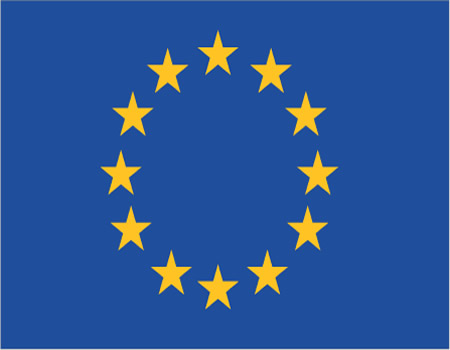The European Union has provided technical support to key electoral institutions and stakeholders since Nigeria’s return to democratic rule in 1999, with over 150 million euros committed so far.
Head of the European Union Delegation to Nigeria, Ambassador Samuela Isopi, made this known on Monday in Abuja, at a ceremony marking the closure of Phase I and launch of Phase II of the European Union Support to Democratic Governance in Nigeria (the EU-SDGN) Programme.
She urged the Federal Government to put modalities in place towards ensuring that the conduct of the 2023 elections is peaceful, free, fair and inclusive for the benefit of Nigeria and its people.
“Who wins the elections is for the Nigerian people to decide,” she said.
Isopi said the EU believes that only a functioning democracy could address citizens’ needs and build prosperous, resilient and strong societies, noting that the support to electoral processes was a key element of the EU’s cooperation policy with its partners.
On support for 2023 elections, she announced that the total sum of €39 million has been earmarked for the second phase of the programme which would be implemented until 2027, with a focus on six specific components, including improvement in the quality of electoral administration in Nigeria as well as strengthen capacities for legislative and judicial reform in compliance with democratic principles and standards.
Other components are: enhancing pluralism, internal democracy and equality of opportunity in the political parties and the political party system; empowering media, including new media to promote fair and ethical coverage of the electoral process and combat hate speech, among others.
ALSO READ FROM NIGERIAN TRIBUNE
Chairman of the Independent National Electoral Commission (INEC), Professor Mahmood Yakubu, who is saddled with the conduct of the elections, reassured Nigerians that their votes would count, saying the Commission is committed to electoral justice.
The EU envoy to Nigeria who noted that the electoral campaign would start in two weeks, warned politicians against violence and hate speech, stressing that the campaign should be peaceful and issues-based.
“As a friend of Nigeria, we would like to see peaceful and issues-based campaigns and we would like to encourage all stakeholders to take a firm stance against violence and hate speech.
“The 2019 Peace Accords facilitated by the National Peace Committee played an important role and we welcome new efforts and commitments towards that goal.
“We are particularly keen to see greater participation of youth, women and people with disabilities,” Isopi said.
She further stressed that there was a need to support and respect the fundamental and independent role of INEC as it fulfils its constitutional mandate.
She said: “INEC must be allowed to operate free from outside pressure, and in turn must demonstrate full neutrality and professionalism.
“Tremendous progress has been achieved. The new Electoral Act is a major step forward and its full implementation together with the technical reforms introduced by INEC have the potential to make the 2023 general election a milestone in Nigeria’s democratic history.
She said the European Union would continue to provide targeted support by building on the successes of the past electoral cycles and taking forward the very significant lessons learned within the period.
While stressing that Nigeria has the responsibility to lead and inspire other democracies on the African continent, Isopi said as the largest democracy in Africa, elections in Nigeria matter.
“They matter to Nigeria and Nigerians, they also matter for Africa as their outcome will be watched and felt well beyond its borders. 6 months ahead of the 2023 General Election, Nigeria is at a pivotal moment in the process,” said.
She noted that the rule of law, human rights and democracy are the founding principles of the European Union, adding that the support to democracy worldwide was not just consistent with the European Union’s fundamental values, it is part of the interest and remains a crucial tool in the EU foreign policy in engagement with partners across the world.
She said: “The European Union has provided technical support to key electoral institutions and stakeholders since Nigeria’s return to democratic rule in 1999, with over a hundred and fifty million euros (150 million euros) committed so far.
“Phase 1 of the EU-SDGN programme contributed to the reform of the electoral process by building capacities, strengthening institutions, strengthening the role and participation of civil society, contributing to the reform of the legal framework.
“Building on the success of the first phase, the Identification and Formulation of phase II of the programme was done in consultation with the Nigerian Government and key stakeholders such as the Independent National Electoral Commission (INEC) and civil society organisations.
“The overall objective of the programme is to foster a functioning pluralistic, inclusive, participatory and representative democracy in Nigeria.
“Even though today marks the official launch of the programme, implementation started five months ago in April 2022, a month before the end of Phase 1.
“The programme of which the total amount is 39 million euros – will be implemented until 2027.
“We hope that everybody will make the right choices for Nigeria. The European Union is ready to do its part.
“Nigerian authorities have already invited the European Union to deploy an Election Observation Mission, as we have consistently and regularly done since 1999. Preparations are underway to be able also this time to positively respond to this invitation,” she said.
Chairman of INEC, Professor Mahmood Yakubu, in his remark, assured Nigerians that the Commission is working hard with partners to ensure free, fair and credible elections in 2023, where votes of everyone must count.
He said: “The Commission will continue to work with the EU, our development partners and all electoral stakeholders to ensure the sustainability of our electoral reforms in order to protect the integrity and guarantee the credibility of election outcomes based on the rule of law and the will of the electorate.”
Black Friday In Ibarapa: 64-Year-Old Man, 13 Others End 120km Journey In Mortuary
We’ve committed €150m to support key electoral institutions in Nigeria since 1999 ― EU
WATCH TOP VIDEOS FROM NIGERIAN TRIBUNE TV
- Let’s Talk About SELF-AWARENESS
- Is Your Confidence Mistaken for Pride? Let’s talk about it
- Is Etiquette About Perfection…Or Just Not Being Rude?
- Top Psychologist Reveal 3 Signs You’re Struggling With Imposter Syndrome
- Do You Pick Up Work-Related Calls at Midnight or Never? Let’s Talk About Boundaries






